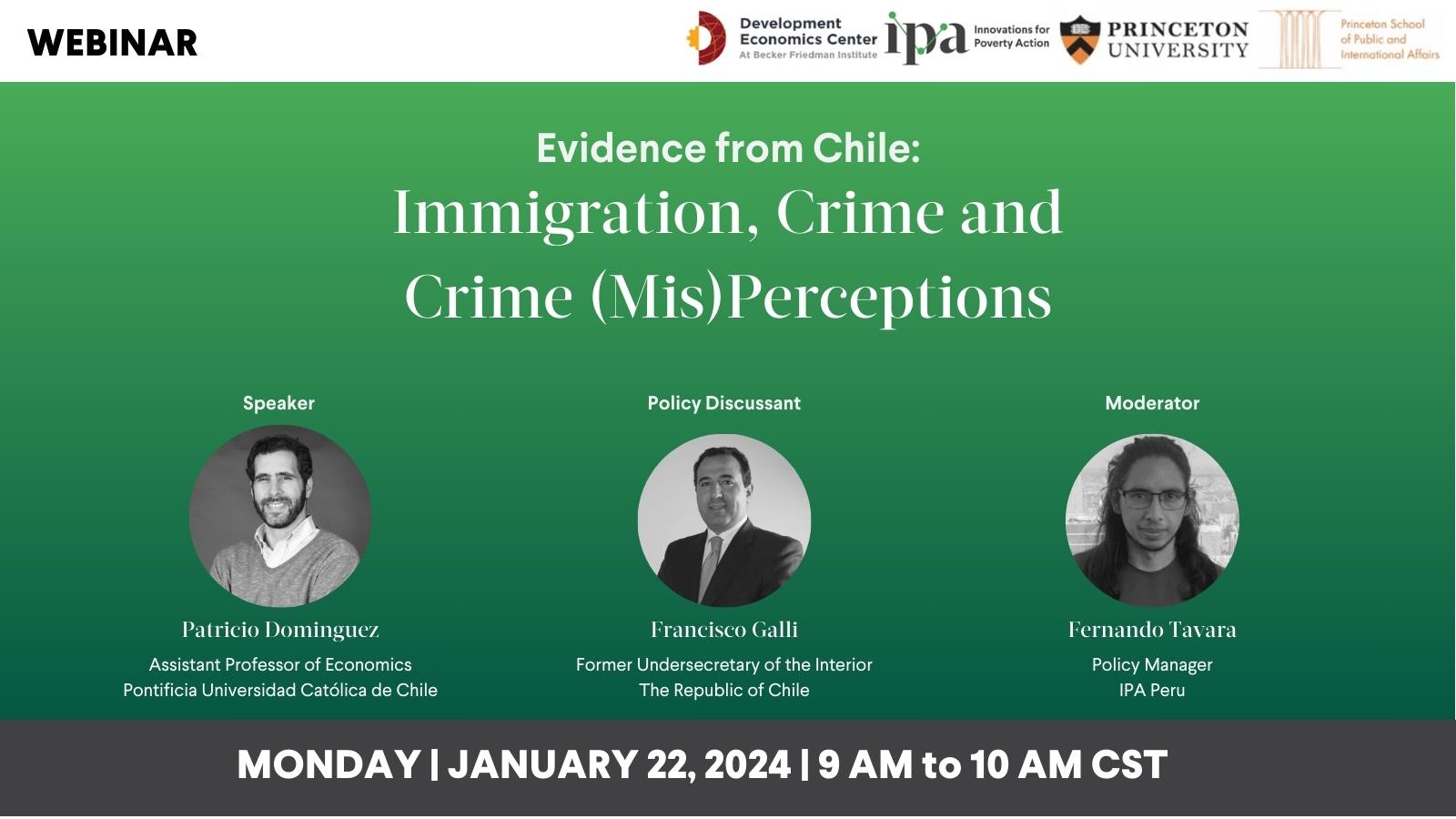Webinar | Immigration, Crime, and Crime (Mis)Perceptions: Evidence from Chile

This webinar is the thirteenth webinar in a series presenting innovative research on crime and violence in Latin America and the Caribbean. If you would like to receive updates via email on future webinars in this series, sign up for the series mailing list here.
When it comes to combating crime and homicide in Latin America and the Caribbean (LAC) —home to 41 of the 50 most dangerous cities in the world—policymakers have few tested tools at their disposal. Although evidence is scarce, recent efforts to produce rigorous research is helping to broaden our understanding of what works in reducing violence and crime in the region.
The Becker Friedman Institute (BFI) at the University of Chicago, Princeton University, and Innovations for Poverty Action are pleased to host this series focusing on violence and crime in Latin America and the Caribbean. This monthly series aims to shed light on novel innovative research on violence and crime in the LAC region and its policy implications.
In this webinar, Patricio Dominguez (Pontificia Universidad Católica de Chile) will present new findings, which show that immigration increased citizens’ crime-related concerns and preventive actions, such as increasing home security, despite no significant impact on actual crime rates due to rising immigration rates being detected. The study explores possible mechanisms including the media’s influence in shaping public perception. Francisco Galli (former Chilean Undersecretary of Interior) will comment on the policy implications of this research. A 10-minute Q&A will follow the presentation.
This series is open to the public and all are encouraged to attend. This seminar will be presented in English only.












